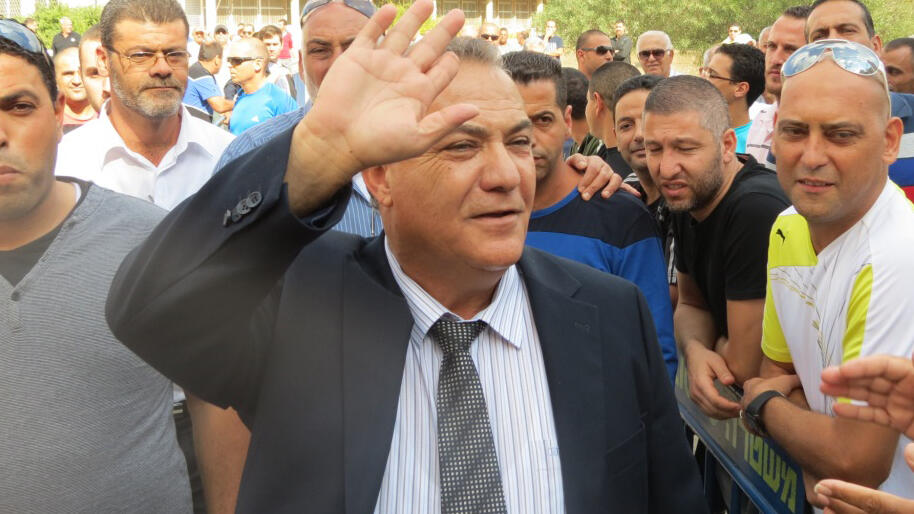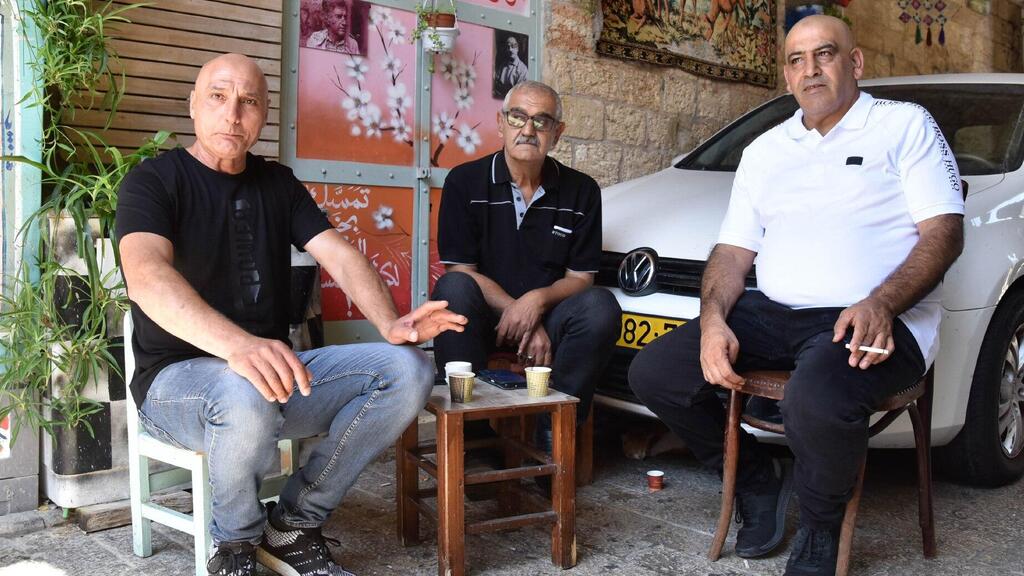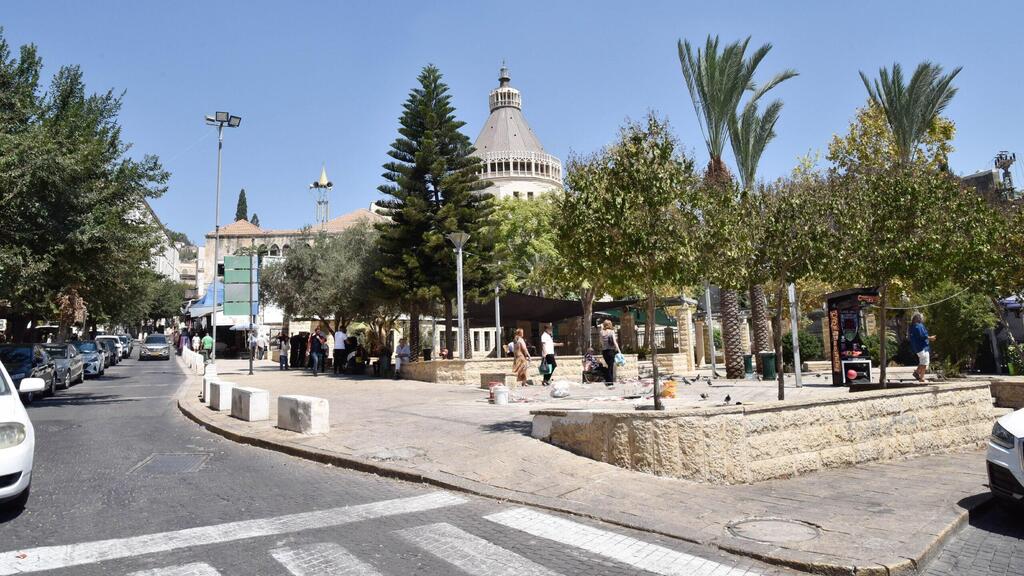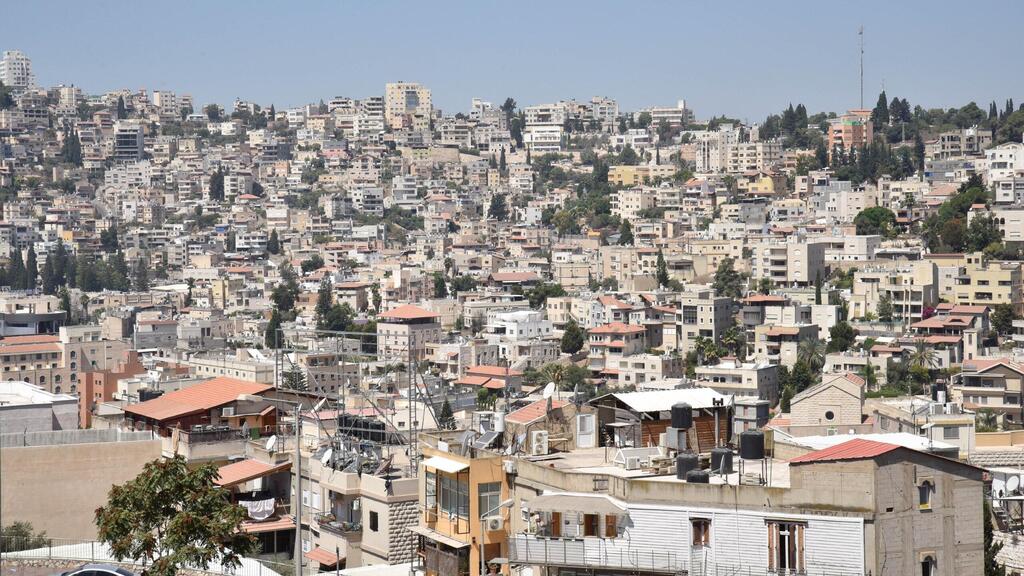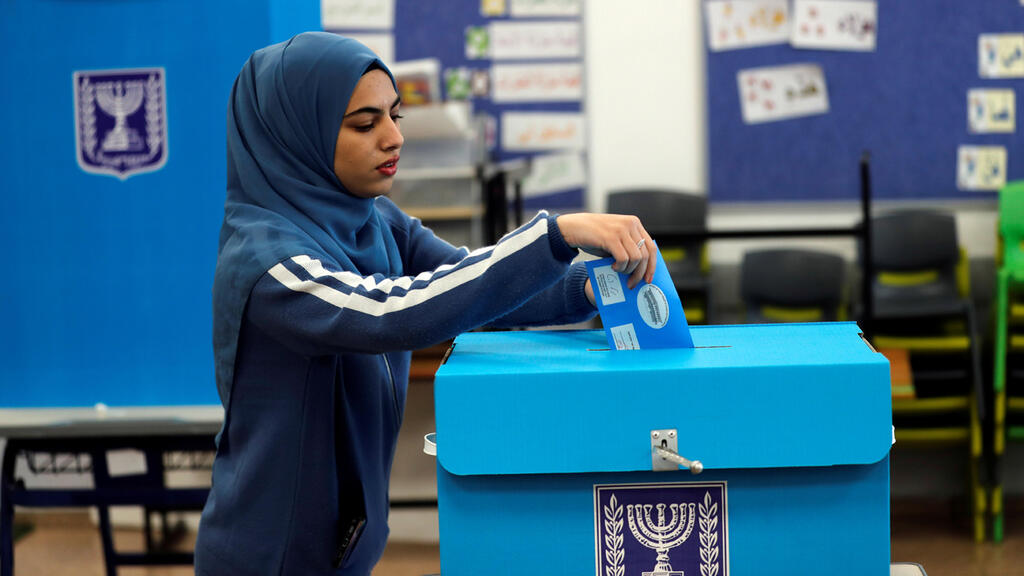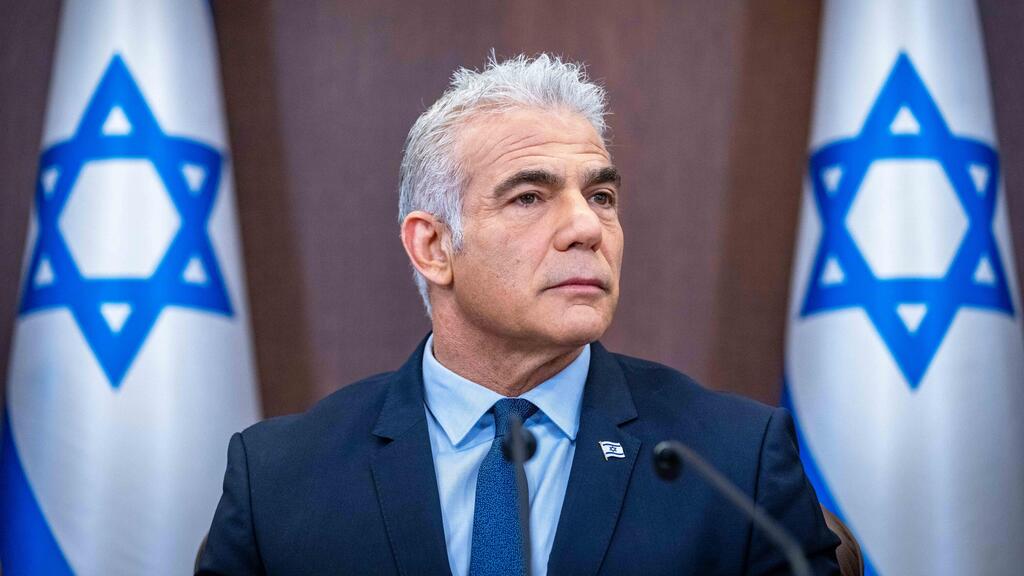Nazareth, or as it’s known in Israeli Arab sector, the “Captial of the Arab Community” or the “City of the Annunciation”, is the country’s most important cultural and economic Arab city.
During election campaigns, the city buzzes even louder than usual, serving as a barometer for Israeli politics.
The Israeli Communist Party headquarters sit in Nazareth. Ever since the foundation of the state, red flags have been flying in the city. A passer-by in the city’s old market says Nazareth "has always held a special place in national politics.”
In an interview to Ynet, the city’s mayor Ali Salam said that Opposition leader Benjamin Netanyahu is the best person to serve as prime minister – even best for the country’s Arab population.
Admittedly, Salam avoided questions pertaining to Netanyahu and budget allocation for the Arab population, but praised for doing "what he says he’ll do.” When asked whether Netanyahu is the solution to the Palestinian problem, he responded: “You’ll see that he is.”
In 1975, the Communist Party won a sweeping victory for control of the city’s municipality. The party, which has since become Hadash, has dictated the tone and defined Arab Israelis’ economic policy. Tawfiq Zaid, who served as the city’s mayor for 19 years, is largely responsible for Hadash’s popularity among Israel’s Arabs.
Things took an unexpected turn for Hadash in the 2013 municipal elections. Deputy mayor, Ali Salam drew up a list affiliated with the Islamist Ra’am party, campaigning primarily on ethnic differences. Hadash’s glory days were over.
Much can be learned from the market’s “parliaments” - where local people meet in small groups to discuss the political agenda of the day. The hottest topic right now is the Arab political parties, especially the dismantling of the Joint List. They call it the “broken dream.”
In the middle of the market, we found the central “parliament” – that of Abu Ubeyda, who is angry with the Arab parties. “The Arab parties didn’t unite. Our votes will go to waste,“ he fumes. “I understand that the Communists and the Islamic Movement have their differences, the people want them to remain united. It strengthens the nationalist sentiment.”
He claims that “we voted for them and they’re arguing about things that we think are silly, so a lot of people don’t want to vote because they’ve had enough of all the arguments. We’re care about economic interests of all the Arabs, including fighting crime and restoring people’s feeling of personal safety. All their divisions have made them forget the people.”
Another “parliament” participant, Azmi Hamad, adds: “I voted for the Joint List so that they serve us. People are already boycotting the elections. There are people who don’t want to vote because they understand that with or without us, there is no influence. When we had 15 or 13 seats, we had political strength. The only thing we want is unity.”
Opinions differ whether Arab parties should join the governing coalition: “If the Joint List was united, we’d need the coalition,” explains Hamad. Abu Ubeyda thinks otherwise: “What good come from staying in Opposition?” Hamad remembers that four years ago, when the residents of Nazareth were not flocking to the voting booths and party activists started asking residents to get out and vote: “That’s what will happen this time too.”
Overhearing our conversation, Um Ham’am, cut in, excitedly exclaiming: “I’ll be the first not to vote. You see what situation we’re in, and you see what they’re doing to us. Even if they swear on the Quran – they’re all liars. They shouldn’t even be standing. They’re an embarrassment.” Her determined words brought the “parliament” back to the question of nationalism. One group member explained that “there’s nothing harder than being an Israeli Arab. Even the Syrians have it easier – they have a clear homeland and we don’t even have a football team. There’s a problem of belonging.”
It looks like Ra’am has taken Nazareth as an election project. Leading Ra’am activist, Fadi Ajawi, explains: “We hold meetings in people’s homes. The party has taken special care of the city though budgeting and programs to narrow economic gaps in the community. Unlike the Joint List, our list is peaceful. Ra’am has caught on in Nazareth. The traditional Communist vote in the city numbers 15,000 and Hadash is an old party which doesn’t have a young generation to keep it going. Young people are coming to us at Ra’am.”
Ajawi continues, explaining the city’s voting history: “Traditionally the Islamic Movement and Ra’am were against Hadash. The argument was a religious one – Christians against Muslims. Most of Hadash voters are Christian while most voting Ra’am are Muslim.”
Sharif Zuabi, former Nazareth city council member and the city’s Hadash campaign director disagrees: “Hadash is the strongest in Nazareth, despite the mayor being from Ra’am. He can’t beat us. Ali Salam’s campaign is based on persuading people to hate Hadash.”
He adds: “I don’t have enough influence yet. In the last elections, Salam put on a large meeting for Ra’am and we still got ten thousand votes more than they did. Nazareth is still a Hadash stronghold.” Zuabi tells us that the municipal elections always become about religion - Christians against Muslims. “In Salam’s Muslim neighborhoods, they vote for the Joint List.”
It's similar in other Arab communities - lack of unity among the Arab parties deters 20% from voting at. When the parties are united, there’s a 60% turnout. If they’re divided, only 40% turn out at the ballots. “That’s the general atmosphere," Zuabi says, adding that “the fear is that voter turnout will hit an all-time low.”
7 View gallery
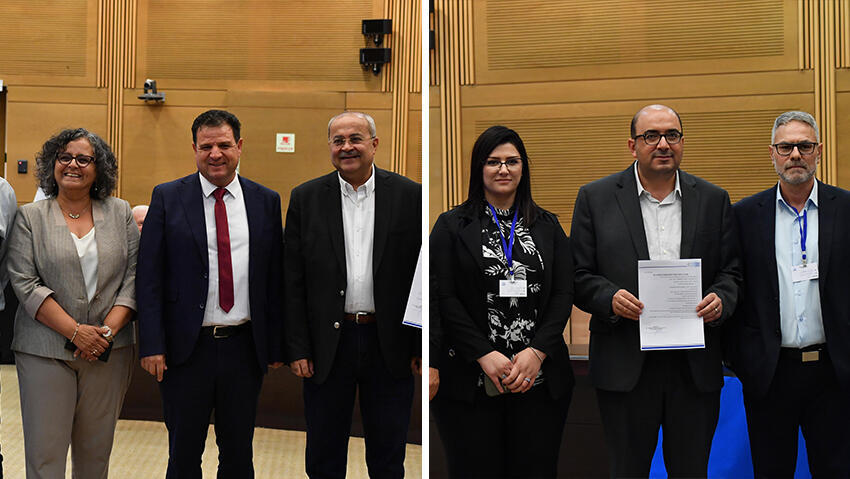

Arab parties presenting their lists for Knesset separately
(Photo: Yoav Dudkowit Dudkevitch)
Salam says: “We’ll do everything we can to make sure people can vote, but I don’t think the turnout will change. From 1948 to today, no one has done anything for us. We’re waiting for real peace, and no one thinks about us. They thought about the Emirates, Qatar and Dubai, but no one has thought about the Palestinian problem.
“What has the new government got done? They’ve been there for a year and what have they done about violence in the Arab community? Has anyone done anything? Everyone just wants to talk about it, but not actually do anything.” Salam adds: “The time has come for real peace between Israelis and Palestinians. We’ve had enough.”
What will the campaign look like?
A campaign has been running over the past two weeks in the Arab community, calling for the parties to unite – even with Ra’am declaring: “If you don’t unite, we don’t vote.” All surveys point to an all-time-low voter turnout in the Arab community.
Balad, which quickly recovered after breaking away from the Joint List, launched its own slogan this week: “Balad can.” It is expected to start a broad campaign in the Arab community, including home meetings and field work in the larger Arab communities throughout the country.
Hadash is also set to launch their campaign. With 72 branches throughout the country, they have a big campaign planned together with Ta’al, including meetings in homes, meeting young and old supporters and activists in the field. Ra’am has hung signs in Arab towns and take pride in their achievements in budgeting, finding solutions to the problem of land expropriation and opening schools
In a Ynet interview, Balad Party Chairman Sami Abu Shehadeh, attacked his former friends: “Tibi and Uda pulled a trick with Lapid by pushing us out of the political system, but they got the exact opposite result.”
“We did all we could to keep the Joint List together. We had a signed agreement regulating the rotation system. Hadash wanted changes at the last minute. We agreed to these changes. We also agreed to arbitration. Tibi and Uda decided to push Balad out of the Joint List and run on their own. They weren’t even honest enough to give us back the paperwork. They just left it there. If I hadn’t had a copy, there would be no Balad. Avigdor Liberman's Israel Beytenu filed a request to open a process to disqualify our chairman, claiming that he posed an ‘existential danger to the State of Israel’."
Meanwhile, senior sources in Yesh Atid say that Lapid was not involved in the split, but claimed that he had made it clear on more than one occasion to Tibi and Uda that partnership would be impossible with Balad’s extremism. Yesh Atid believe that Balad has very few voters anyway and that as cooperation with the Arab community increases, Balad will weaken.


